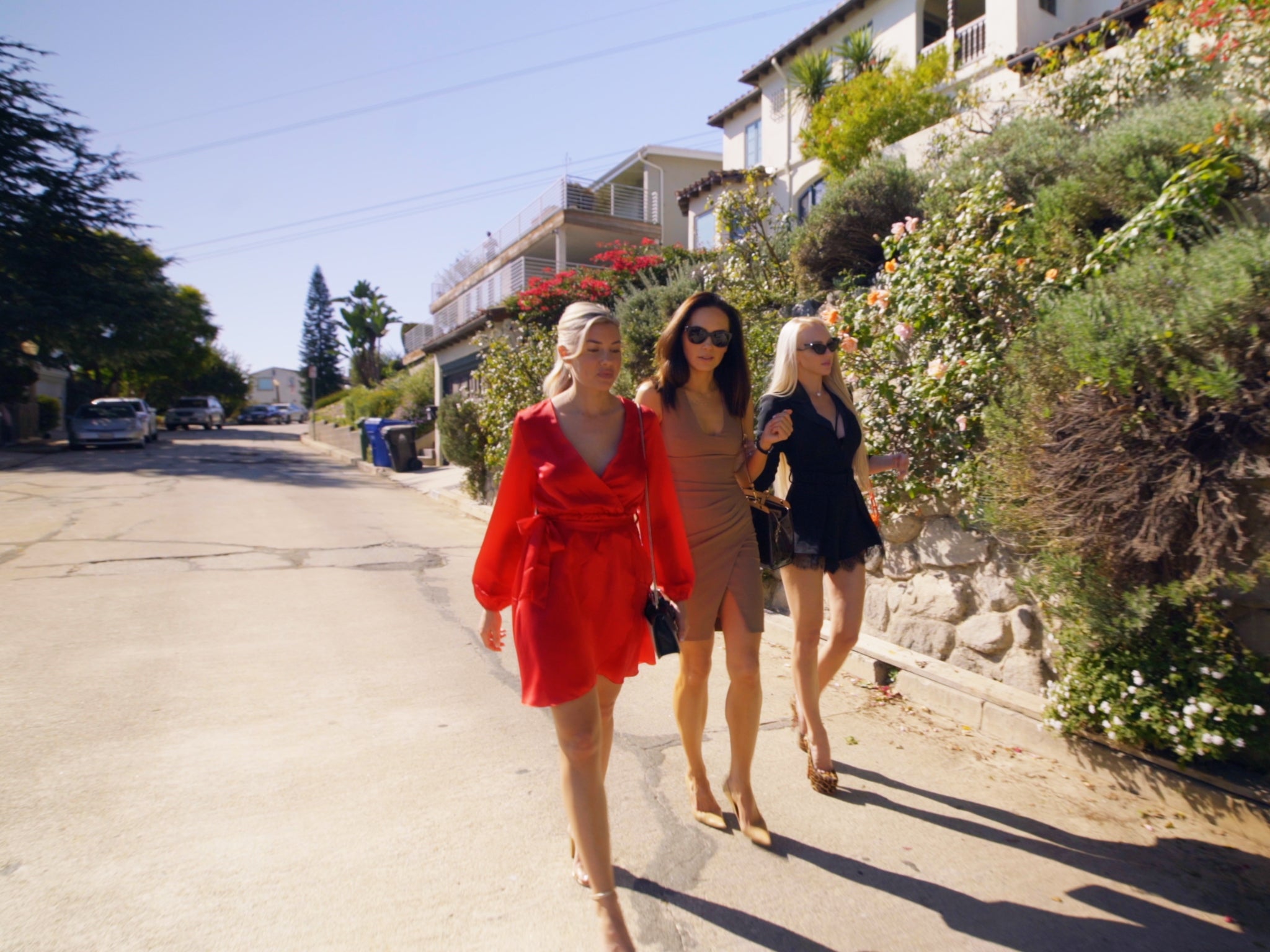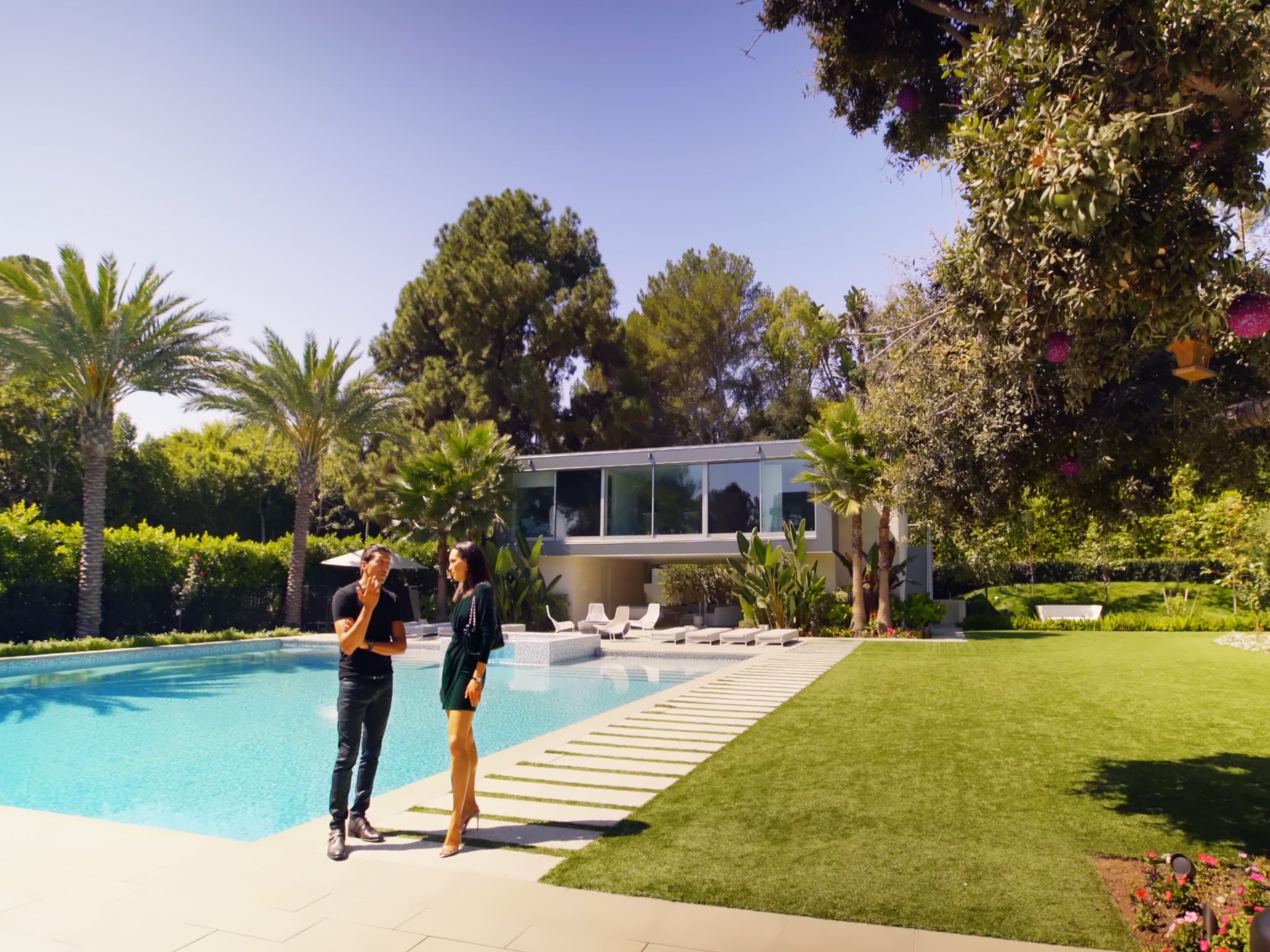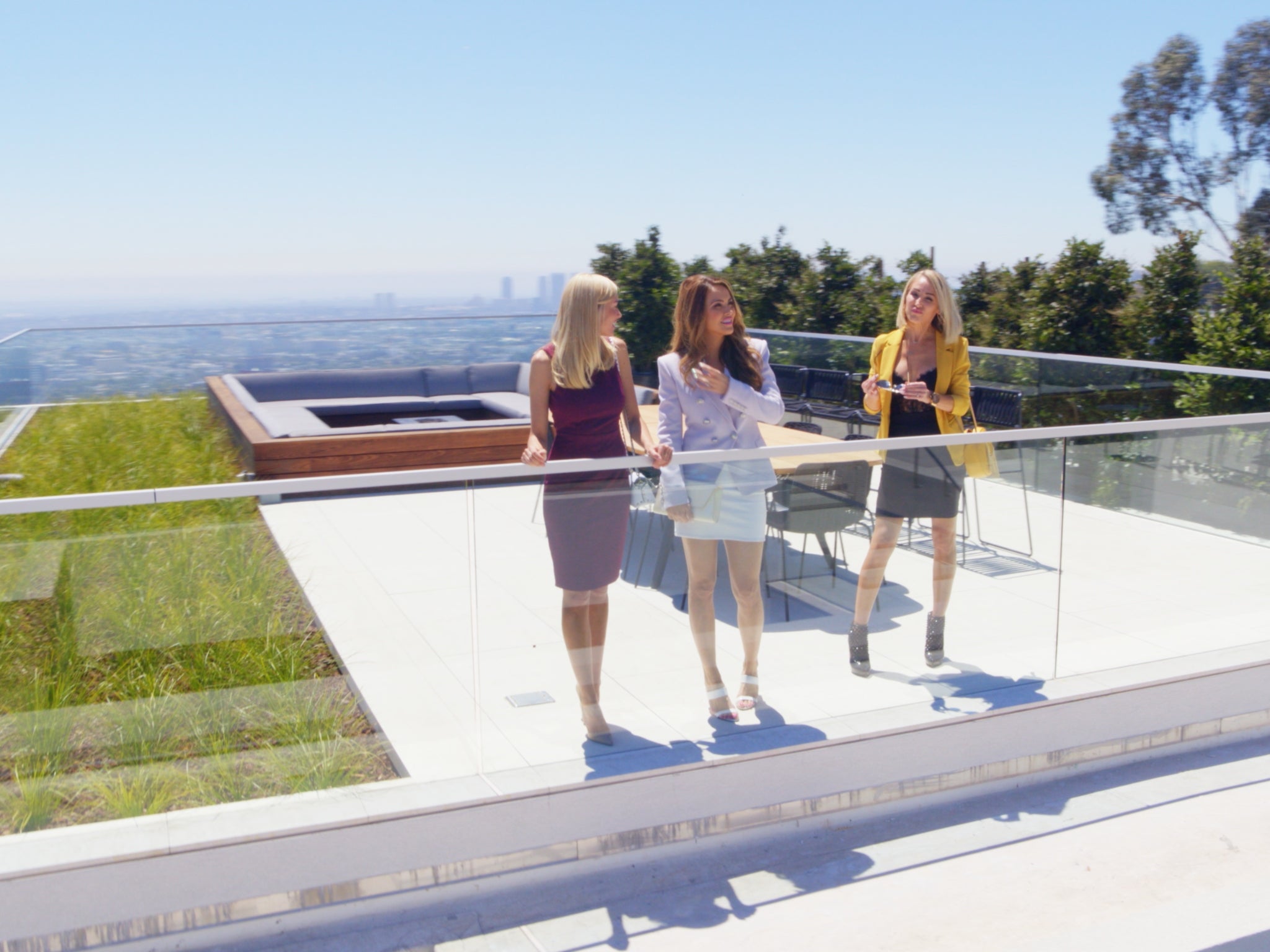‘If looks could sell’: Netflix series Selling Sunset shows property porn that will make you drool
The Oppenheim Group girls call themselves ‘strong women’, ‘kickass women’, ‘badass women’, mistakenly conflating female empowerment – never ‘feminism’ – with hoarding cash, says Annie Lord


Your support helps us to tell the story
From reproductive rights to climate change to Big Tech, The Independent is on the ground when the story is developing. Whether it's investigating the financials of Elon Musk's pro-Trump PAC or producing our latest documentary, 'The A Word', which shines a light on the American women fighting for reproductive rights, we know how important it is to parse out the facts from the messaging.
At such a critical moment in US history, we need reporters on the ground. Your donation allows us to keep sending journalists to speak to both sides of the story.
The Independent is trusted by Americans across the entire political spectrum. And unlike many other quality news outlets, we choose not to lock Americans out of our reporting and analysis with paywalls. We believe quality journalism should be available to everyone, paid for by those who can afford it.
Your support makes all the difference.Is an American reality show worth watching if it doesn’t feature a slimy man called Brett? Vanderpump Rules had Brett Caprioni; Rock of Love had Bret Michaels; and now, Selling Sunset has Brett Oppenheim and his equally oleaginous twin brother Jay. Created by the same people who made The Hills, Netflix’s latest reality TV venture (now on its second season, with a third on the way) follows the drama at the twins’ real estate company The Oppenheim Group, where they’ve hired a harem of Playboy Bunny-types to sell LA mansions to billionaires. The women take turns falling out – in one episode, Christine gets drunk and screams at Chrishell, “Do you have f***ing dementia?” – and the properties get sold for a revolting amount of money. At the tamest level, they go for about $5m, at the extreme levels $75m. Enough to solve the climate crisis levels of money. Enough to supply face masks to the entire world levels of money. We scream at the TV but keep on watching.
Selling Sunset is property porn sold by women who look like porn stars (the first episode is called “If looks could sell”). Brett and Jay make use of the Hooters sales model which suggests people are more likely open their wallets if they are attracted to the salesperson. Much of the humour comes from laughing at the real estate brokers for how vapid they are. On a dog walk, Mary describes her best friend and colleague Christine as her “polar opposite”, which turns out to mean that they like different nail colours. “When we go and get her nails done, she gets black and I get white,” Mary confesses. “I don’t know why we’re friends but it works, somehow.” Contrary to Mary’s analysis, all the women working at The Oppenheim Group are strikingly similar. Each has calf muscles sharpened into right angles by years in six-inch Louboutins. They like Balmain power blazers, tiny chihuahuas called “Coco”, yoga pants, open-plan kitchens, dinners that cost $750 a head. They all go against my socialist politics. I love them all dearly.
The only difference is Christine is nastier than everyone else. Without this Heidi Montag-meets-Kevin McCloud, the show would just be made up of conversations where women talk about their tech mogul husbands over salad (dressing on the side). She is an agent of chaos. A sharp-tongued vixen. A tornado of confrontation. She tells the other women not to like Chrishell's Instagram posts and has a cocktail called “Chrishell's Two Faced Tonic” at a party Chrishell wasn't invited to. In the car with her new husband she huffs: “I know we’re not poor so can we turn the air-con on please?” Christina is rude to people and then shrugs it off by saying, “But no one can accuse me of not being authentic.“ If this was Real Housewives, she would get a glass of vodka lime soda poured over her head, but Selling Sunset is of a much more classy reality TV franchise, so they just tell her that she has “toxic energy”.
The Oppenheim Group girls call themselves “strong women”, “kickass women”, “badass women”, mistakenly conflating female empowerment – never “feminism” – with hoarding cash. I’m obsessed with the Sheryl Sandberg-style Lean In soundtrack. ”Float like a butterfly/ Sting like a bee/ Because everywhere I go/ All eyes on me,” yells one song as Christina steps out of a ginormous car. Here, being a “girl boss” means getting as big a piece of the pie as men do, and matching the greediness of men. But if women are at the top of a bad system, does it make the system any better? According to the mega-mansion-industrial complex, houses aren’t to live in, they are commodities whose price fluctuates according to whether the land it’s built on is currently desirable. The Valley is “coming up” so Chrishell rushes out to hand developers her business cards. She secures a listing with an indoor basketball court and stairs with LED lights which turn on when you walk up them for $5m. It’s considered cheap. Meanwhile, normal people are priced out of their homes or told to leave so something new can be built – a shopping centre or a luxury condo. The Oppenheim Group aren’t solely responsible for gentrification, but flogging million-pound properties to finance million-pound lifestyles is not exactly something you should yell “yaaas queen” at. The sunset is supposed to be for everyone but they have captured it and are now selling it on for a profit.

Still, I’m sad to say, Selling Sunset has sold itself to me and I haven’t been the same since. Watching all these gorgeous, leggy blondes strutting around mansions, acrylic nails drumming over marble surface tops, stilettos clinking against hardwood floors, I’ve inhabited the mindset of a low-level property tycoon. I nod my head approvingly at a Bel Air mansion’s stainless steel subzero appliances and shake it as new agent Azenza mistakes the accordion doors for pockets. “Millionaires have views, billionaires have compounds,” has become my new mantra. Nine bathrooms has started to seem like a normal amount for a house to have.

As an unhappy member of the “I won’t ever buy a house until my parents die” generation, the property on this show has the extra lurid attraction of unattainability. Grey corner sofas, infinity pools, open fires, wet rooms, slash lamps, cinema rooms all come together to comprise my new kink. I don’t like the taste of the Los Angeles super-rich. The houses look a bit like my old secondary school after it was renovated, or the shopping centre I used to hang out in as a teenager. But I want these houses like I want men who don’t fancy me. They are making me drool.
Join our commenting forum
Join thought-provoking conversations, follow other Independent readers and see their replies
Comments